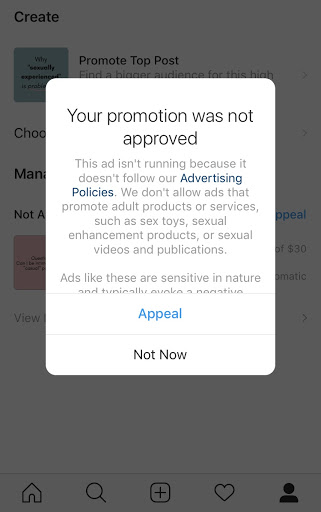In the United States, survivors must report sexual violence to law enforcement in order to press charges against their assailant. According to the Sex Workers Project, sex workers “are reluctant to go to the police because of potential arrest or further assault,” and this sentiment also applies to undocumented, BIPOC and LGBTQIA+ survivors of sexual violence. Social media can be one of the only ways to have our voices heard, warn others about our perpetrators and receive accountability from the public. Sex education accounts, which often discuss consent and sex positivity, are another form of sexual violence activism that supports survivors and their experiences. Instagram’s new Community Guidelines, which will be instituted on December 20, 2020, threaten the autonomy of survivors and the ability to create sexual education content.
Section 9: Bullying and Harassment of the new Instagram Community Guidelines, bans users from posting “content that would otherwise require the victim to report the content or an indicator that the poster is directly targeting the victim (e.g., the victim is tagged in the post or comment).” This means that survivors of sexual violence could be threatened under the title of “harassment” for calling out their perpetators. Under the Terms of Service, Instagram has the right to share information with law enforcement, which could result in further damage to victims trying to tell their stories.
Under Section 12: Hate Speech of the new guidelines, “dehumanizing speech or imagery in the form of comparisons, generalizations, or unqualified behavioral statements” is banned when referring to “sexual predators[s]” and “sexual criminals.” Although this excludes “those described as having carried out violent crimes or sexual offenses,” if the incident has not been reported or substantiated according to Instagram, they can still remove it. Instagram can now claim that calling out your abuser is a form of hate speech, which is unsurprising considering their history of hate speech claims as an excuse to silence communities. Instagram is owned by Facebook, a company known for its notorious conservative bias. According to leaked audio of Facebook CEO Mark Zuckerbeg, Facebook and Instagram consider the phrase “men are trash” a form of hate speech.
A report on Instagram algorithm bias by Salty Magazine in October 2019 provided data that LGBTQIA+ creators, women, BIPOC, sex workers and fat people are disproportionately targeted by Facebook and Instagram’s content removal policies. While the Instagram Community Guidelines claim to promote goodwill and target discrimination on the platform, they rarely remove legitimately offensive content and instead further harm marginalized communities.
Sex workers are explicitly targeted in Section 15: Sexual Solicitation, with the introduction noting that “we draw the line, however, when content facilitates, encourages or coordinates sexual encounters or commercial sexual services between adults such as prostitution or escort services.” While I strongly support the legalization of full service sex work, the exchange of money for physical sexual acts is illegal in the United States. Sex work such as stripping, camming or selling content on sites like OnlyFans is legal in the United States, yet Instagram prohibits all forms of sex work under their community guidelines. Full service sex workers are at a high risk of sexual violence and under the new guidelines, they can’t share resources, call out perpetrators or promote their services.
Section 15: Sexual Solicitation also “restrict[s] sexually explicit language that may lead to solicitation,” which allows Instagram to target any form of sexual content, including “mentions or depictions of sexual activity.” How are survivors and educators supposed to share information about sexual violence and consent if they aren’t even allowed to talk about sex? This vague phrasing gives Instagram further permission to label any form of sensuality as “solicitation,” which the Salty article notes, disproportionately affects black women and LGBTQIA+ folks.
Social media can be a voice, community and education tool for survivors of sexual violence, especially for young survivors of sexual violence. Instagram’s new Community Guidelines are silencing voices and causing trauma, all in the name of public decency for a conservative audience.

Ilana Slavit
Hi, I’m Ilana, a 2020 Film and Media Studies graduate of the University of Oregon. I’ve always been passionate about representation of sex and gender in the media through a social justice focused lens. As a survivor, I am grateful to be a member of the Education Team in order to spread awareness of consent and pleasure. I am in the process of becoming an ASSECT certified Sex Educator through the Institute of Sexuality Education and Enlightenment. In my free time, I like to write, make short films, go to (now virtual)




